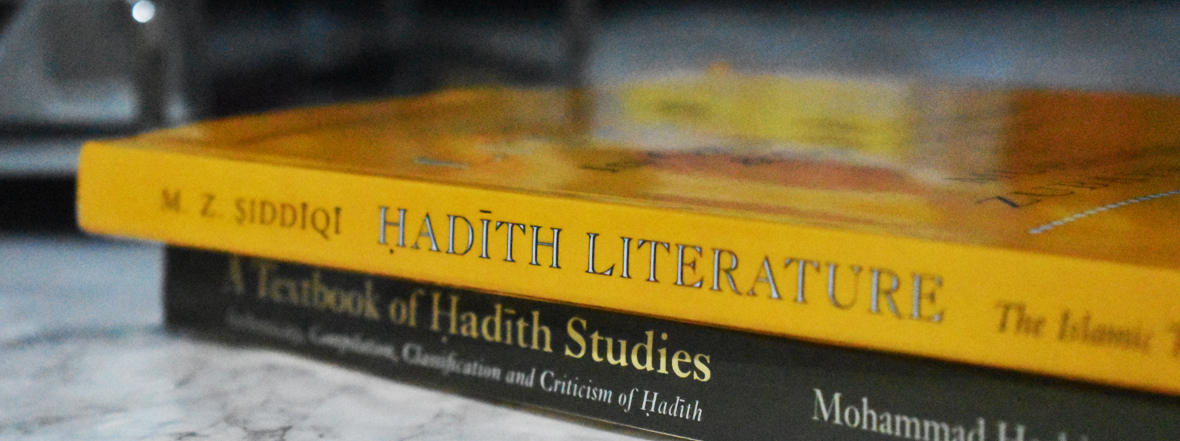Scholars have long debated the authenticity of the ḥadīth regarding the six fasts of Shawwāl. This article is not about that. Those interested in that topic can read Dr Yusuf Shabbir’s treatise on it, titled An Expositive Treatise on the Six Fasts of Shawwāl.
Rather, the point of discussion in the current article is about how to interpret it — that there is a logic that underpins it. Here are two variants of the ḥadīth. Read both carefully, as we’ll be coming back to them.
عَنْ أَبِي أَيُّوبَ الْأَنْصَارِيِّ رَضِيَ اللهُ عَنْهُ، أَنَّهُ حَدَّثَهُ، أَنَّ رَسُولَ اللهِ ﷺ قَالَ: مَنْ صَامَ رَمَضَانَ ثُمَّ أَتْبَعَهُ سِتًّا مِنْ شَوَّالٍ، كَانَ كَصِيَامِ الدَّهْرِ
“Whoever fasts Ramaḍān then follows it up with six from Shawwāl, it is like fasting perpetually” (Muslim: 1164).
عَنْ ثَوْبَانَ، مَوْلَى رَسُولِ اللَّهِ ﷺ، عَنْ رَسُولِ اللَّهِ ﷺ أَنَّهُ قَالَ: مَنْ صَامَ سِتَّةَ أَيَّامٍ بَعْدَ الْفِطْرِ كَانَ تَمَامَ السَّنَةِ، مَنْ جَاءَ بِالْحَسَنَةِ فَلَهُ عَشْرُ أَمْثَالِهَا
Whoever fasts six days after the Fiṭr, it would [be equivalent of] completing the entire year. [Allāh said,] ‘Whoever brings a good deed, he will receive ten times [its reward]’” (Ibn Mājah: 1715).
Interpreting the Ḥadīth
Many have interpreted this in a literal way: that is, to attain the reward of perpetual fasting, all six fasts must be kept within the month of Shawwāl. This is fine, and those who follow it are free to act upon it. I pray that Allah accepts their worships and grant them the above mentioned reward.
However, some scholars offer an interpretation that is more literate rather than literal. They say that whether you fast all six within Shawwāl or keep some afterwards, you still attain the reward. This is typically dismissed as a minority or strange view. However, upon closer inspection, it has more merit than is often given credit for. And it is this view for which I offer a defence here.
The reasoning behind this is quite clear: good deeds are multiplied by 10. So, by fasting Ramadan, you’ve already attained the reward of fasting 10 months. Therefore, to top it up to an entire year, gain another 2 months’ worth of reward by fasting another 6 days.
مَن جَآءَ بِٱلۡحَسَنَةِ فَلَهُۥ عَشۡرُ أَمۡثَالِهَاۖ وَمَن جَآءَ بِٱلسَّيِّئَةِ فَلَا يُجۡزَىٰٓ إِلَّا مِثۡلَهَا وَهُمۡ لَا يُظۡلَمُونَ ١٦٠
“Whoever performs a good deed will receive ten times its [reward]; and whoever does a bad deed will be repaid only with its equivalent, and they will not be wronged” (6:160).
Those who accept the ḥadīth to be authentic should have no qualms accepting that this reasoning is not from a later scholar but from the Prophet ﷺ himself, drawing on a verse of the Qurʾān (6:160).
Therefore, whether one keeps all six fasts within Shawwāl or spreads them out as per their convenience, they will attain the reward by Allah’s permission. This is because regardless of when they keep the 6 fasts, they will be rewarded for 60. And 10 months + 2 months = 1 year.
Note that Ibn Mājah’s narration doesn’t specify Shawwāl but, rather, says ‘after the Fiṭr’. This narration must be kept in mind when interpreting the other narration in Ṣaḥīḥ Muslim.
Does this make the mention of Shawwāl redundant?
This doesn’t necessarily mean that Shawwāl (as mentioned in Ṣaḥīḥ Muslim) becomes redundant. What it does mean, however, is that the discussion about whether من in this context means ‘in’ or ‘from’ is a moot point. Fast in Shawwāl or from Shawwāl, your deeds earn 10 times their assigned rewards.
Those who interpret the narration of Ṣaḥīḥ Muslim literally without any further context fail to see the irony in interpreting من (lit. ‘from’) in a non-literal way. This already is inconsistent, but I don’t intend to nit-pick here. There are bigger inconsistencies to worry about.
The reason for it not being redundant is because the aim here is to encourage immediacy – i.e. believers are to continue fasting voluntarily and start sooner rather than later. If someone waits until the following Shaʿbān, they will still attain the rewards bi idhnillāh but will be missing the opportunity of immediately topping up their Ramaḍān fasts to earn a year’s worth of rewards.
If you finish all your fasts in Shawwāl, the encouragement for voluntary fasts does not end. In fact, the Prophet ﷺ also said that fasting 3 days every month is equivalent to fasting the whole year. This is because 3 days earns the reward of 30 days, which is an entire month. The logic remains consistent.
عَنْ عَبْدِ اللَّهِ بْنِ عَمْرِو بْنِ العَاصِ رَضِيَ اللَّهُ عَنْهُمَا، قَالَ: قَالَ النَّبِيُّ ﷺ: «صَوْمُ ثَلاَثَةِ أَيَّامٍ صَوْمُ الدَّهْرِ كُلِّهِ»
“Fasting three days is [equivalent to] fasting perpetually” (Bukhārī: 1979; Muslim: 1162).
Thus, mentioning Shawwāl is a linguistic style to encourage immediacy in resuming voluntary fasts, and Shawwāl is the immediate month after Ramaḍān, so most will want to top up their reward within Shawwāl. In Arabic, we describe this as ‘خرج مخرج الغالب’. A typical example is in the following verse.
وَمَا كُنتَ تَتۡلُواْ مِن قَبۡلِهِۦ مِن كِتَٰبٖ وَلَا تَخُطُّهُۥ بِيَمِينِكَۖ إِذٗا لَّٱرۡتَابَ ٱلۡمُبۡطِلُونَ ٤٨
“And you were not a reader of any scripture before it, nor did you write it with your right hand. Otherwise, the people of falsehood would have been suspicious” (29:48).
In the above verse, yamīnik means right hand. We know the Prophet ﷺ was unlettered and thus could not write with his left hand either (ولا نتعرّض هنا لما قاله الباجي). This does not make ‘right hand’ redundant. Rather, it is a linguistic style.
What if Ramaḍān is only 29 days?
Some may object that Ramadan isn’t always 30 days, but often 29, so 29×10=290, and adding 60 will only be 350 – thus raising scepticism regarding the above interpretation. This stems from two misunderstandings:
- how to calculate without pedantry, and
- the nature of the sharʿī month.
The Prophet ﷺ told us clearly that a complete month has 29 days. The 30th is a bonus. Thus, Ramaḍān should be calculated not as 29 days but 1 complete month. 29 days is not incomplete. So, rather than 29 days x 10, one ought to calculate more broadly: 1 month x 10 = 10 months.
عَنْ أَنَسِ بْنِ مَالِكٍ:أَنَّ رَسُولَ اللهِ ﷺ قَالَ: إِنَّ الشَّهْرَ تِسْعٌ وَعِشْرُونَ». وفي رواية لمسلم: وَلَمْ يَقُلْ ثَلَاثِينَ».
“Indeed, a month is 29” (Bukhārī: 378; Muslim: 1080). In a variant report in Ṣaḥīḥ Muslim, the narrator adds: “And he did not say 30.”
Why is all this important?
All of this is important to know as it has real-life consequences. Imams are frequently asked how menstruating women can attain the rewards of the 6 Shawwāl fasts if they haven’t yet made up for their missed fasts in Ramaḍān. This reading opens up that door for them. Usually, women are told either to make up for their missed fasts first and then keep the 6, or that they can attain the rewards by making up their missed fasts within Shawwāl. While it might be nice and comforting to hear, there is no rhyme or reason behind either of those responses.
Instead, a more rigorous, coherent and internally consistent explanation is better as it not only keeps the Sharīʿah flexible (also note that these fasts are nafl, not wājib) but also avoids having to make unwarranted claims about the unseen without evidence.
To conclude, those who feel uncomfortable with this are more than welcome to keep all 6 fasts within Shawwāl. However, please don’t dismiss the more logical view (that comes from a variant of the ḥadīth it self, drawing on Qurʾān’s own principle) as invalid.
Literary criticism is a more than forcing everything into the framework of fiqh. The 6 fasts of Shawwāl transcend legal schools. As such, let’s not madhhabise its interpretation. Avoid becoming rabbinical when approaching religion. Beware of the Talmudification of Islam.
Northampton – 11 Shawwāl 1443/13 May 2022






